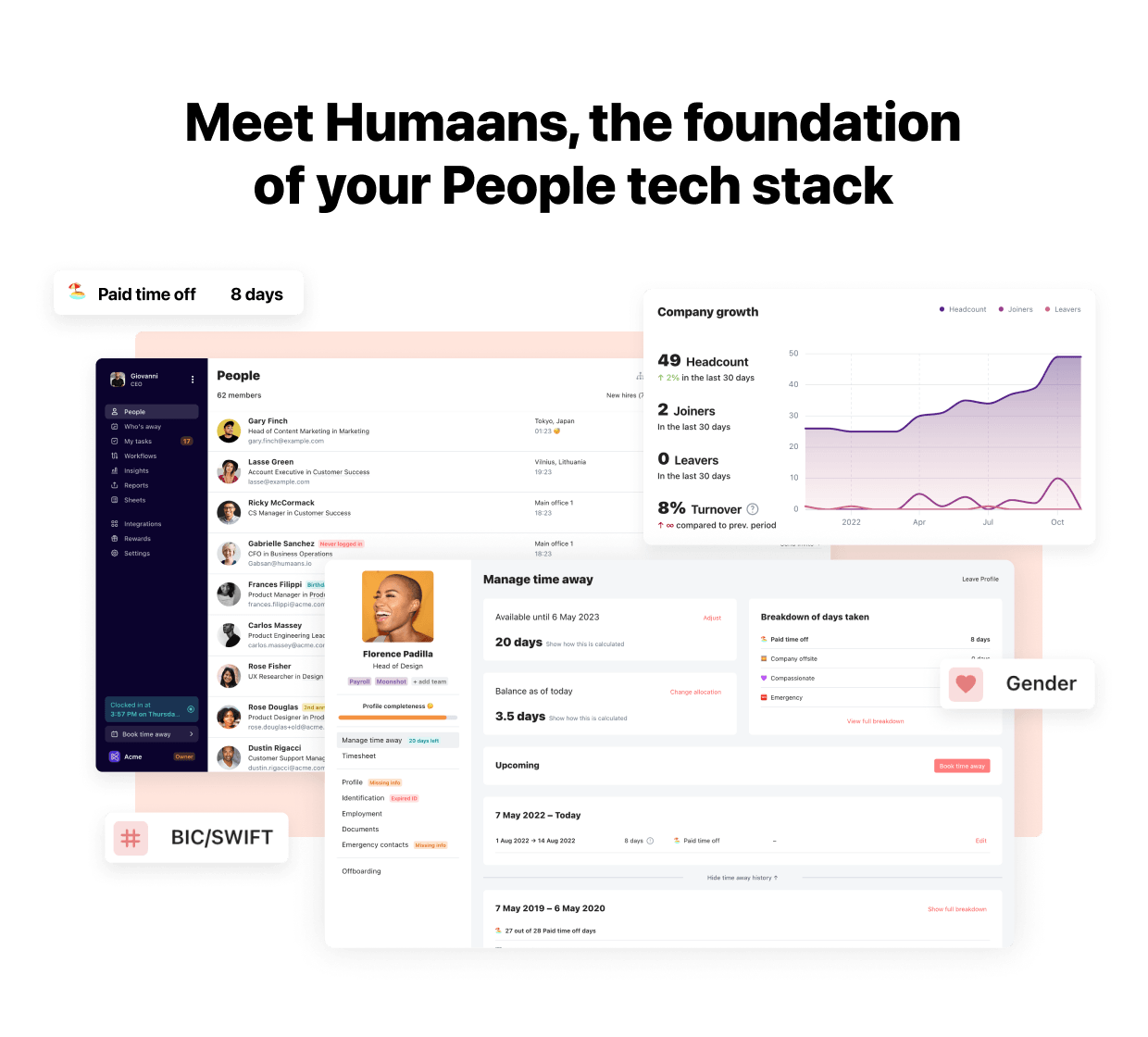The end of 2022 and the beginning of 2023 were marked by the beginning of a sad news cycle. Large layoffs among startups like Dutch scale-up MessageBird (reporting a 31% reduction of its workforce), Swedish e-scooter and micromobility outfit Voi (laid off 13% of staff), London HR tech scale-up Beamery (staff numbers reduced by 12%), Dutch tech giant Philips (plan to cut 3,000 jobs by the end of 2023) and Parisian SME-focused payroll and HR management solution PayFit (in the process of reducing its workforce by 20%). And, unfortunately, it is not the end of the list.
These examples are just further fodder behind Humaans research that showed 59% of teams reporting reductions over the last 18 months but that 61% of HR managers believed their HR team is understaffed. In the current compression, 54% of HR managers believe that the role of the HR professional has grown more complex as they navigate an increasingly turbulent landscape, with smaller teams and fewer resources.
The survey, which queried 1,000 HR Managers across the United States, United Kingdom, Ireland, Italy, Germany, France, Spain, Sweden, Netherlands, Norway, and Poland demonstrated that 46% of HR managers believe companies will continue to implement cost-cutting measures such as layoffs, hiring freezes, and budget cuts into the second half of 2023.
"Today, HR leaders play a meaningful, strategic role in helping organizations to navigate the downturn, and mitigate the risks and impact it may have on their people. But as the data shows, their teams are understaffed and it is increasingly clear that much of their tools aren’t fit for purpose." - Giovanni Luperti, CEO and Co-Founder of Humaans
Although a number of companies of late have faced significant layoffs, most of the respondents think that investing in HR tech is very important (76% would like to invest in HR tech in 2023).
Specifically, as HR professionals continue to navigate the rapidly evolving world of work, the results show that with less budget and smaller teams, it’s increasingly important to equip teams with the tools they need to succeed (55% of HR managers are stating that the right tools can help them save more time on HR tasks).
Since working remotely (or some form of hybrid work) has become the de facto method of today's workforce, cybersecurity threats have become far more commonplace. The concern about the security of their company’s people data is increasing, with 61% of HR managers claiming that the data security of their HR technology could be improved. On the other side, it's clear their current HR tech stack is not fit for purpose.
Even though the macro environment is changing and the budget cutoffs are increasing, diversity and belonging remain top of mind for HR leaders, as 53% of respondents agree that these are the key business advantages in 2023 (while 28% of them lack the tools to track their company's diversity metrics). Having a robust HR tech stack can improve employee experience, and 46% have seen improvements at their company thanks to tech.
As stated by Giovanni Luperti, "The success of any company hinges on the success of its people, and a robust HR tech stack is a powerful component to enable that success."

Humaans is a London-based startup founded in 2020 by former Qubit product leaders Giovanni Luperti and Karolis Narkevicius. To date, the startup raised $20 million and serves customers in 28 countries (with 106 countries where their customers have employees). Recently, Humaans launched a new product, Tables which allows browsing, filtering, reporting, manipulating, and importing all of the employee data.
Instead of relying on software platforms and so-called one-size-fits-all solutions, Humaans enable building a customized set of human operations. In this way, companies have the opportunity to manage employee data, document contracts, and create reports on human processes that drive the entire HR structure.



Would you like to write the first comment?
Login to post comments